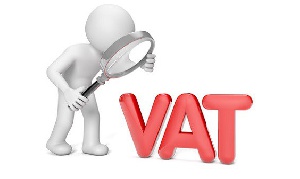 The business community in Ghana will heave a sigh of relief following the VAT cut
The business community in Ghana will heave a sigh of relief following the VAT cut
The NPP government has with immediate effect, through the Ghana Revenue Authority (GRA) abolished the Value Added Tax (VAT) charged on all financial service transactions in the country.
GRA in a letter, citied by the thebftonline.com, has directed all financial institutions to cease charging the VAT on financial services as the law backing tax has been repealed.
The statement which was signed by the Commissioner General of the GRA, Emmanuel Kofi Nti stated that “To give legal effect to the policy on VAT on Financial services, Parliament passed the Value Added Tax (Amendment), Act 2017, Act 948 to include the supply of the financial services as exempt supply”.
The letter further stated that, “in line with the above, we hereby inform all financial institutions to discontinue charging VAT on financial services.”
The Minister of Finance, Ken Ofori-Atta in presenting the 2017 Budget statement presented to parliament, announced that the NPP government had abolished the 17.5% VAT/NHIL being charged on financial services.
The business community in Ghana will heave a sigh of relief, following government’s announcement of the repeal of this tax which was among a list of taxes are being abolished, while others have been reviewed.
The cancellation of the taxes, most of which affects businesses, according to the government, are aimed at providing a friendly environment for businesses in the country.
Below is the list of taxes that have been abolished and reviewed by the government.
Abolished Taxes
1 percent Special Import Levy;
5 percent VAT/NHIL on financial services;
5 percent VAT/NHIL on selected imported medicines, that are not produced locally;
Initiate steps to remove import duties on raw materials and machinery for production within the context of the ECOWAS Common External Tariff (CET) Protocol;
5 percent VAT/NHIL on domestic airline tickets;
5 percent VAT/NHIL on Real Estate sales;
Excise duty on petroleum;
Special petroleum tax rate from 17.5 percent to 15 percent;
Duty on the importation of spare parts;
Levies imposed on kayayei by local authorities;
Taxation, the gains from realisation of securities listed on the Ghana Stock Exchange or publicly held securities approved by the Securities and Exchange Commission (SEC);
Reviewed Taxes
Reduce National Electrification Scheme Levy from 5 percent to 3 percent;
Reduce Public Lighting Levy from 5 percent to 2 percent; – Replace the 17.5 VAT/NHIL rate with a flat rate of 3 percent for traders; and
Implement tax credits and other incentives for businesses that hire young graduates.